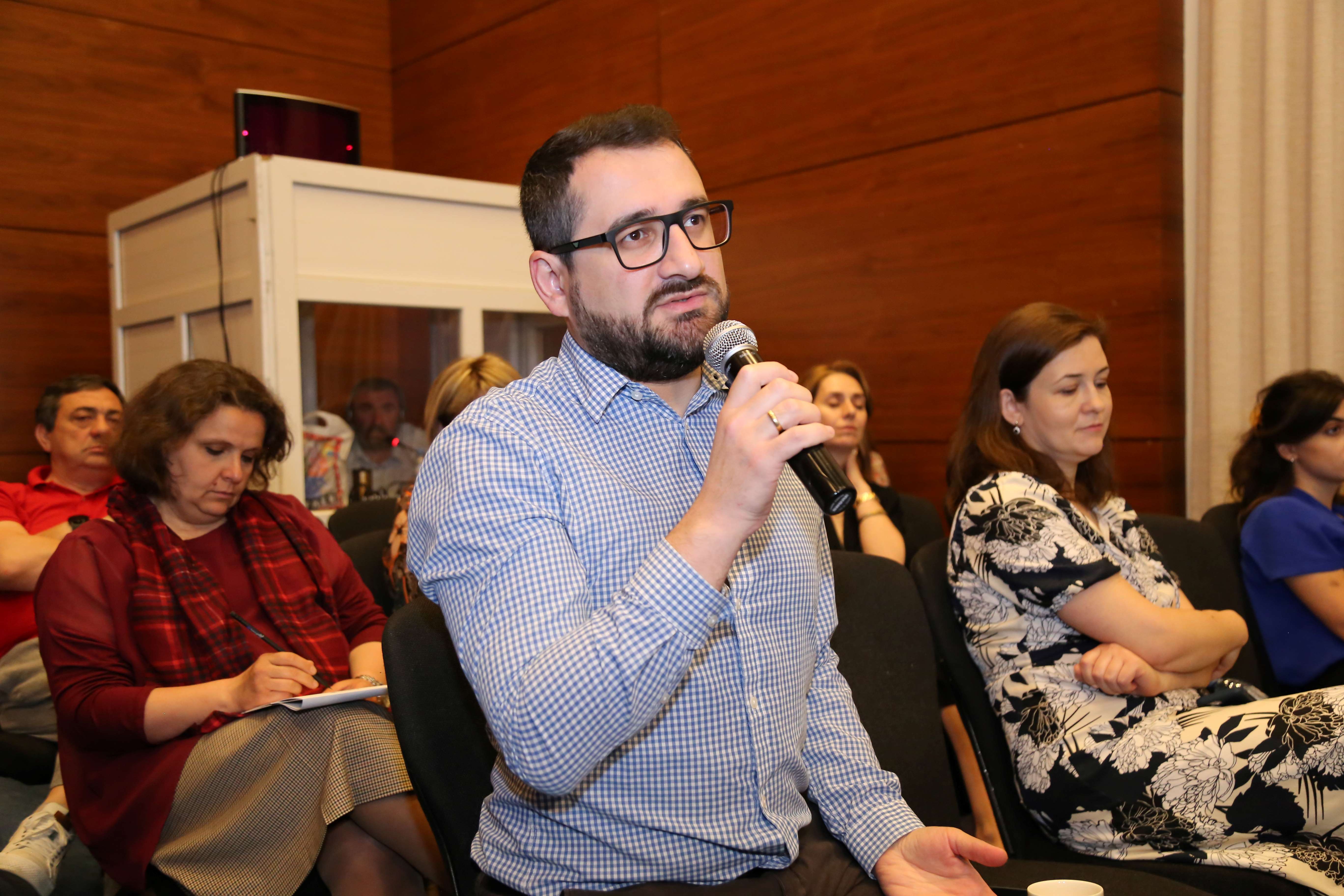Growing Towards a Sustainable Future with Support of GCF

Georgia Launches Project to Boost Climate Action in Agriculture and Food Systems
The Ministry of Environmental Protection and Agriculture of Georgia, in collaboration with the Food and Agriculture Organization of the United Nations, hosted an inaugural event to launch a new project supported by the Green Climate Fund (GCF). The project aims to support the low-emission and climate resilient transformation of the agri-food systems in Georgia.
FAO will be working closely with the government agencies to introduce state-of the art knowledge and best practices to reduce greenhouse gas emissions and increase effectiveness of the agrifood systems in Georgia. The project will address policy gaps utilizing an agriculture sector roadmap, providing policy recommendations, and creating a financing action plan. Consultations with and the involvement of key stakeholders and partners is a key approach.
The event served as a platform for stakeholders from various sectors to come together, facilitating information sharing, networking, and fostering collaboration among climate action experts, government officials, development partners, and professionals in the agri-food sector. The event commenced with opening remarks by Nino Tandilashvili, the First Deputy Minister of Environmental Protection and Agriculture of Georgia and Raimund Jehle, FAO Representative in Georgia. The event featured keynote presentations on Georgia's engagement with GCF made by MEPA and about the forthcoming project as presented by the delivery partner of the project, FAO.
Tandilashvili emphasized the significance of the project, stating: “The world clearly sees that climate change influences various sectors of Countries’ economies, including agricultural sector. Georgia is not an exception of course. Accordingly, it is crucially important for us to form a specific vision that will support the agricultural sector to become more climate smart. Climate adaptation actions should be planned according to the international practice approved by the European Union. We are ready to make amendments into the state programs, introduce additional mechanisms that will grow capabilities of adaptation of the agricultural sector and will minimize harmful emissions into the air from this sector. All this is crucially important now, when Georgia makes an important step on its way to European integration”.

The project will be implemented over a two-year period as part of the GCF's readiness support programme. Through the expertise of the FAO and the support of the GCF, this partnership aims to drive transformative change in Georgia's agri-food systems. The project recognizes the importance of data collection and informed decision-making to advance Georgia's climate ambition.
"For almost 20 years of program implementation in Georgia, at FAO we recognize that the country's agri-food systems hold immense potential for low-carbon sustainable growth and climate resilience," said Raimund Jehle, FAO Representative in Georgia. He added: "By harnessing the power of collaboration and leveraging the expertise of the FAO and our partners, we can cultivate a transformative agrifood systems that not only align with Georgia's climate commitments and priorities but also pave the way for a prosperous and sustainable future for the country."
Georgia, renowned for its rich agricultural heritage, faces a critical challenge in balancing the growth of its agrifood sector with its climate commitments, while combating the impacts of climate change that are already evident in the country and the agricultural sectors. Without intervention, emissions from this sector could increase by 40 percent by 2030. To tackle this pressing issue, Georgia has already taken significant steps, such as updating its Nationally Determined Contribution (NDC) and formulating the 2030 Climate Change Strategy and its action plan. However, further assistance is necessary to fully unlock the country's potential for a sustainable agri-food systems while achieving its climate goals and supporting adaptation and increased resilience.







